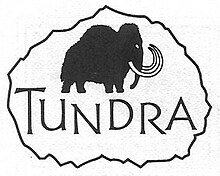
Eddie Campbell is a British comics artist and cartoonist who now lives in Chicago. Probably best known as the illustrator and publisher of From Hell, Campbell is also the creator of the semi-autobiographical Alec stories collected in Alec: The Years Have Pants, and Bacchus, a wry adventure series about the few Greek gods who have survived to the present day.
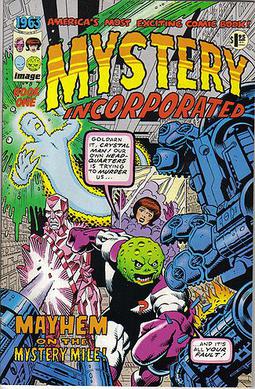
1963 is an American six-issue comic book limited series written by Alan Moore in 1993, with art by his frequent collaborators Steve Bissette, John Totleben, and Rick Veitch. Dave Gibbons, Don Simpson, and Jim Valentino also contributed art. Image Comics published the series.
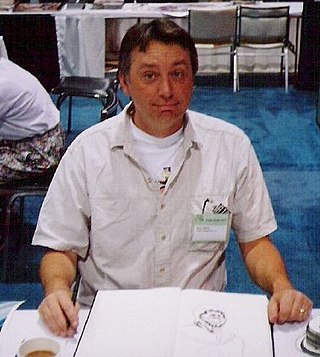
Richard Veitch is an American comics artist and writer who has worked in mainstream, underground, and alternative comics.
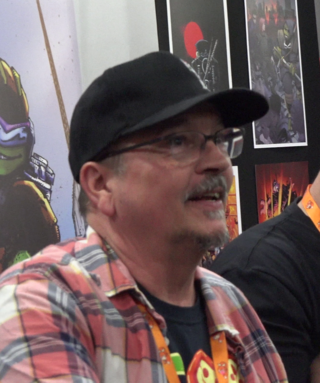
Kevin Brooks Eastman is an American comic book artist and writer best known for co-creating the Teenage Mutant Ninja Turtles with Peter Laird. Eastman was also formerly the editor and publisher of the magazine Heavy Metal.

Peter Alan Laird is an American comic book writer and artist best known for co-creating the Teenage Mutant Ninja Turtles with writer and artist Kevin Eastman.

Kitchen Sink Press was a comic book publishing company founded by Denis Kitchen in 1970. Kitchen Sink Press was a pioneering publisher of underground comics, and was also responsible for numerous republications of classic comic strips in hardcover and softcover volumes. One of their best-known products was the first full reprint of Will Eisner's The Spirit—first in magazine format, then in standard comic book format. The company closed in 1999.

Stephen R. Bissette is an American comic book artist, editor, and publisher with a focus on the horror genre. He is known for working with writer Alan Moore and inker John Totleben on the DC Comics series Swamp Thing in the 1980s.

A1 is a graphic novel anthology series published by British company Atomeka Press. It was created in 1989 by Garry Leach and Dave Elliott. In 2004 it was restarted, publishing new and old material.
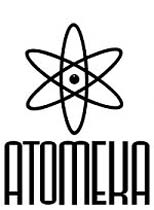
Atomeka Press is a British publisher of comic books set up in 1988 by Dave Elliott and Garry Leach. Atomeka ceased publishing in 1997, was briefly revived from 2002 to 2005 and revived again in 2013.
John Thomas Totleben is an American illustrator working mostly in comic books.

Big Numbers is an unfinished graphic novel by writer Alan Moore and artist Bill Sienkiewicz. In 1990 Moore's short-lived imprint Mad Love published two of the planned twelve issues. The series was picked up by Kevin Eastman's Tundra Publishing, but the completed third issue did not print, and the remaining issues, whose artwork was to be handled by Sienkiewicz's assistant Al Columbia, were never finished.

Cages is a ten-issue comic book limited series by Dave McKean. It was published between 1990 and 1996, and later collected as a single volume.
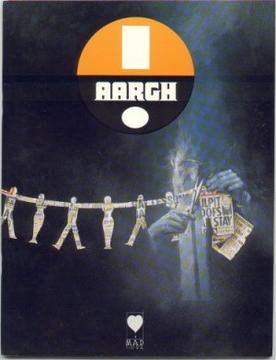
AARGH was a 76-page one-off comics anthology published by Mad Love in 1988.
In the United States, creator ownership in comics is an arrangement in which the comic book creator retains full ownership of the material, regardless of whether the work is self-published or published by a corporate publisher.
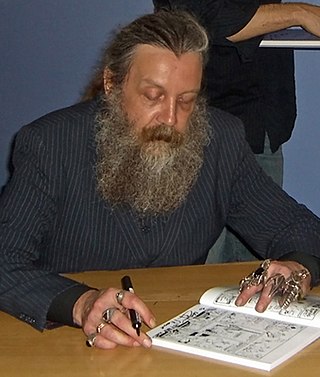
This is a bibliography of works by British author and comic book writer Alan Moore.
The Creator's Bill of Rights is a document drafted in November 1988 by a number of independent comic book artists, writers, and publishers, designed to protect their rights as creators and publishers and oppose exploitation by corporate work for hire practices and the power of distributors to dictate the means of distribution. Issues covered by the Bill included giving creators proper credit for their characters and stories, profit-sharing, distribution, fair contracts, licensing, and return of original artwork. The signing of the Bill spurred Cerebus creator and self-publisher Dave Sim and Teenage Mutant Ninja Turtles creators/self-publishers Kevin Eastman and Peter Laird to sell or continue selling collected volumes of their comics directly to readers via their periodic issues, rather than through direct market distributors selling the collections at comic book specialty shops. Comic book professionals that have commented on the Bill conclude that it had little or no impact on the comic book industry.

Taboo is a comics anthology edited by Steve Bissette that was designed to feature edgier and more adult comics than could be published through mainstream publishers. The series began as a horror anthology, but soon branched out into other genres as well. It was published by various imprints from 1988 to 1995.
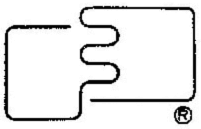
FantaCo Enterprises was an American comic book store and publishing company founded and created by Thomas Skulan and based in Albany, New York. As a publisher, FantaCo was known for its idiosyncratic line-up of mostly black-and-white titles, including the humorous Hembeck Series and the horror title Gore Shriek. FantaCo also published "The Chronicles Series", which cataloged top-selling Marvel Comics titles. In its later years, FantaCo published mostly horror comics and a small number of "good girl art".

Alan Moore is an English author known primarily for his work in comic books including Watchmen, V for Vendetta, The Ballad of Halo Jones, Swamp Thing, Batman:The Killing Joke, and From Hell. He is widely recognised among his peers and critics as one of the best comic book writers in the English language. Moore has occasionally used such pseudonyms as Curt Vile, Jill de Ray, Brilburn Logue, and Translucia Baboon; also, reprints of some of his work have been credited to The Original Writer when Moore requested that his name be removed.
Jeff Nicholson is an American comic book writer, artist and self-publisher, known primarily for his work on Ultra Klutz, Through the Habitrails, Father & Son, and Colonia. Nicholson received a total of six Comics Industry Eisner Award nominations in his 25-year career, and was one of the first four recipients of the Xeric Award comic book self-publishing grants in 1992.
